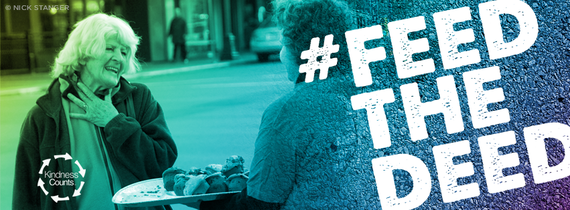For people of my generation, the # symbol will always have two important but very different identities.
On one hand, it continues its long-running role as the number sign used to denote, well, numbers. On the other is the far more glamorous -- and ubiquitous -- hashtag. These four little criss-crossing lines have quickly become our gateway to all things Internet, from the weird to the inspiring and everything in between.
We can argue when the tipping point for "# as hashtag" occurred. For my money, it was last year when Jimmy Fallon and Justin Timberlake mocked its overuse in a hilarious video, which became a viral hashtag in and of itself and cemented the symbol's place in popular culture.
But with apologies to them (and Justin Bieber and Rob Ford), the true power of the hashtag has yet to be seen. I believe that when 2014 is in the books, the hashtag will be a serious candidate for the year's biggest newsmaker. As one of my friends puts it, the hashtag hasn't received this much attention since it was used as the Tic-Tac-Toe game board.
To understand why, it's worth stepping back and considering the nature of the hashtag. They go viral at a moment's notice. They are completely and utterly unpredictable. And, because nobody knows how or why a hashtag becomes popular, it's hard to guess what trend or movement one will inspire next.
Take, for example, the #neknomination hashtag that circulated the globe over the past couple of months where participants would upload videos of themselves drinking ungodly amounts of alcohol to various forms of social media, then nominate their friends to do the same.
On the other end of the spectrum is the #NoMakeupSelfie, a social media phenomenon that inspired thousands of women to post a photo of themselves au natural and nominate a friend to do likewise. While the campaign had an incredibly positive impact, raising millions for cancer research around the world, to this day no one knows exactly how it all came to be.
As the story goes, American author Laura Lippman tweeted a photo of herself without makeup in support of 81-year-old actress Kim Novak, who had been widely criticized after her Oscars appearance. Then bang, (insert hashtag magic here) suddenly it was a viral campaign linked to cancer research.
A quick Google search reveals even more viral hashtags: irate television viewers posting #RIPCommunity to voice their displeasure with NBC for canceling their favorite show; over 1 million people, including First Lady Michelle Obama, tweeting #BringBackOurGirls to demand the release of kidnapped schoolgirls in Nigeria; an (obnoxious) electronic dance music song called #Selfie that has reached the top of Billboard charts worldwide; an #aftersex selfie on Instagram, and on and on.
I myself have even created a viral hashtag campaign along with my dear friend Russell Citron. It's called #FeedtheDeed, and unlike a couple of the examples listed above, it serves to highlight how social media can be purposefully used for positive change in our society.
The change is simple -- perform a creative random act of kindness, then nominate friends and family to follow suit. To date, our campaign has reached more than 1 million people on Facebook, inspiring over 10,000 do-gooders to post #FeedtheDeed videos of themselves performing creative acts of kindness.
From donating food and clothes to the less fortunate to giving blood for the first time, people are making the world a better place, then posting their video to the Kindness Counts Facebook page in order to encourage others to do the same. These like-minded, kind-hearted people are able to write long captions on the page explaining their acts of kindness, and can even 'tag' their friends in multiple countries in order to spread the campaign globally (30+ countries and counting).
By using Facebook to connect others in a pay-it-forward chain, we were capable of producing positive change throughout the world.
While I couldn't be prouder of #FeedtheDeed, I'd be lying if I told you I knew why the hashtag has gone viral. I can tell you, however, the unlikely story of how it started.
While surfing the Internet for the #neknomination hashtag (of all things), I was inspired by a South African man who posted a video of himself giving food to a homeless person in place of his #neknomination bid. I immediately went out to film a video of my own good deed, and shortly after posting it to Facebook I was contacted by Russell.
Turns out he too made a video of himself doing good in the community after being inspired by the same South African man. From there, we decided to use my #FeedtheDeed hashtag and run it through Russell's non-profit organization Kindness Counts.
Everything came together fast and was almost completely random, but given that we're talking about viral hashtags I probably shouldn't be too surprised. As a result, the team at Kindness Counts has grown considerably in order to support this project. This expansion has set the stage for our future exciting initiatives of encouraging others to spread kindness to the world through unconventional methods.
What is surprising is how much I and others have been able to accomplish with a symbol and an Internet connection. We haven't seen the end of campaigns like #neknomination, but that also means that the next of #FeedtheDeed is just around the corner. What we can be sure of is that, for better or worse, those campaigns will be bigger, more impactful, and longer-lasting.
Either way, the hashtag is here to stay.
